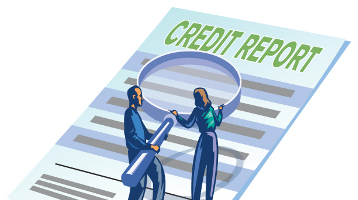 Maintaining a high credit score is very important especially if you intend to apply for a credit card or for a loan in the future. But even if you are not planning to borrow any money soon, it would do you good to make positive changes in your financial practices now because your credit score monitors your financial activities over a long period of time. Drastic changes you may make now will just have a minute effect on your credit score.
Maintaining a high credit score is very important especially if you intend to apply for a credit card or for a loan in the future. But even if you are not planning to borrow any money soon, it would do you good to make positive changes in your financial practices now because your credit score monitors your financial activities over a long period of time. Drastic changes you may make now will just have a minute effect on your credit score.
In order to guarantee that you have a high credit score by the time that you need to take out an additional loan or apply for a new credit card, you have to know what factors actually impact your credit score. This will help you avoid making some seemingly harmless financial mistakes that will surely send your credit score spiralling down the drain.
History of payments
A huge portion of your credit score is attributed to your payment history which is intended to measure how much you can be trusted to repay any amount of money that is loaned to you. This is why it is so important to have a method in place for tracking your spending, so that you can ensure you pay your bills on time. In order to assess this, the credit bureau checks:
- if you have paid each and every one of your obligations
- if you were late in remitting payment, approximately how long does it take you to pay
- if any of the accounts that you keep were sent to collections
- if you have any record of bankruptcies, debt settlements, foreclosures, suits, and judgements made against you
Amount of debt
The second thing that affects your credit score greatly would be the amount of money that you owe. This is directly affected by how much you have used up out of the total credit that you have available and approximately how much you owe for specific type of accounts. In order to get a high percentage for this section of your credit score, it will be wise to keep your debts to a minimum and make sure that you pay off your debts within the time frame that was given to you by lenders, banks, and credit card providers.
Credit history and type of credit
Your credit score also takes into consideration how long you have been using credit to pay off your bills. Also, a small percentage of your credit score takes a look at the variety of credit that you have and the amount that you have for each. Ideally, a long history of credit is preferred as this would show that you were able to maintain your credit cards by being a responsible payer. However, do not worry if you have a short history of credit because it is still possible for you to get a high rating in this category so long as you have been paying on time and your outstanding debt is not that much.
Number of new credit accounts
Your credit score also looks at how many new accounts you have opened because the frequency of opening a new credit account can be indicative of cash flow problems which usually causes people to look for new sources of money. If you have opened a couple of new accounts, this will be interpreted by a potential lender as an inability on your part to comply with any financial obligation that you will have with them because you may already have too much on your plate.